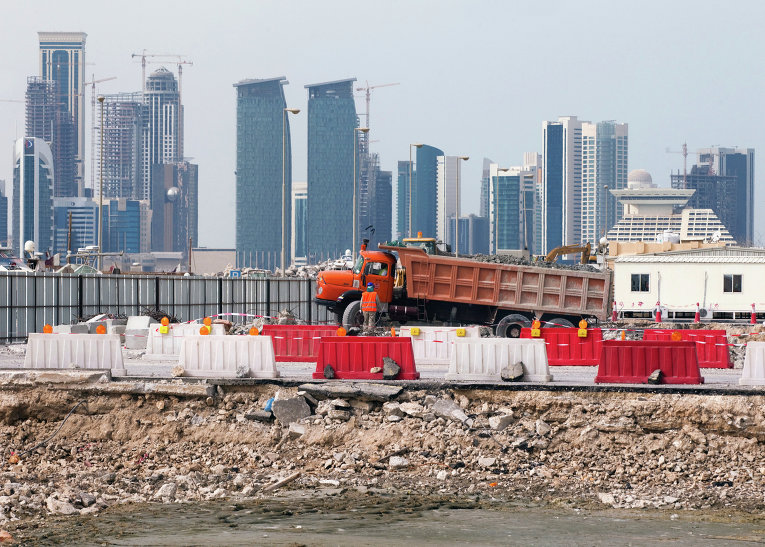MOSCOW, November 18 (RAPSI) - As Qatar is set to begin a number of large-scale construction projects in anticipation of the 2022 World Cup, human rights advocacy group Amnesty International published a report Sunday calling on the host country to develop a comprehensive approach to protecting the rights of migrant workers through legal reform and the provision of services.
The report points to Qatar National Vision 2030, a report published in 2008 by Qatar’s General Secretariat for Development Planning, in illustrating the known importance of expatriate workers in the country. The National Vision report states, “In order to realize Qatar’s future ambitions, it will be necessary to make up for the shortages of local labor with expatriate workers. Attracting and retaining the right mix of skills will require appropriate incentives, as well as institutional arrangements for ensuring the rights and safety of expatriate labor.”
The Amnesty report, titled The Dark Side of Migration: Spotlight on Qatar’s Construction Sector Ahead of the World Cup, states that at present, 1.38 million foreign nationals are working in Qatar, constituting 94% of the total workforce. The report cites the International Labour Organization (ILO) in anticipating that the country will need to recruit an additional one million workers over the course of the next decade. The majority of these recruits are from South and Southeast Asia, and the bulk of those brought in to staff the construction sector are male, according to Amnesty.
The amnesty report claims that “[t]he abuses against migrant workers in the construction center in Qatar are grim.” According to the report, such abuses have been known to include: the discovery by workers upon arriving in Qatar that their salaries and other such labor conditions are different than anticipated; the withholding of wages; workers remaining undocumented and thus vulnerable to detention; the confiscation of workers’ passports; work hours ranging from excessive in some cases to extreme in others; and “squalid” housing accommodations.
With regard to Qatar’s obligations under international law, the report notes that the country is not a party to a number of the core international human rights treaties, including the International Convention on the Protection of the Rights of All Migrant Workers and Members of their Families, but notes that it is a state party to others – including the Convention Against Torture and Other Cruel, Inhuman or Degrading Treatment or Punishment.
Furthermore, Amnesty notes that as a member of the UN Human Rights Council, Qatar should “uphold the highest standards in the promotion and protection of human rights.”
The report adds that Qatar is a member of the ILO, and has ratified five of the eight ILO conventions dealing with international labor standards.
The Amnesty report points to the Qatar National Vision quote in urging comprehensive reform.



